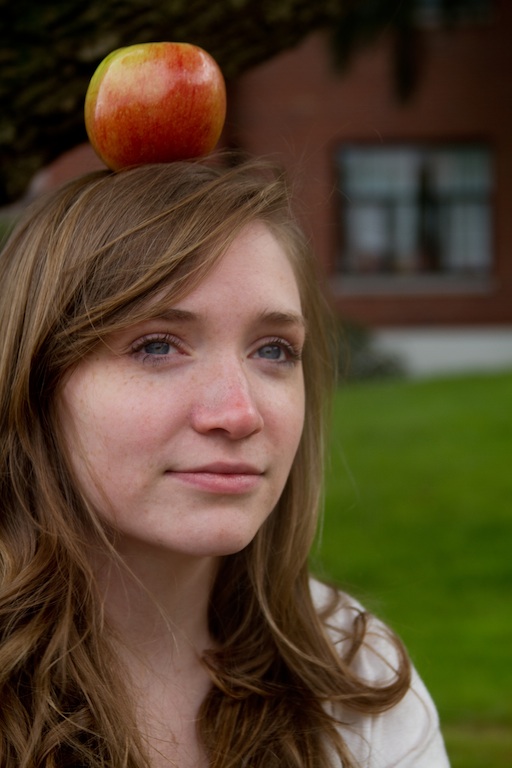
Upon graduating from Puget Sound, a majority of students will be freed from the educational system of which they have been a part for 17 years. Consequently, they will be cut off from the guidance of professors, academic advisors, educational resources and a community of competitive thinkers.
The end of the paperchase will come as a relief for most people, but what can a student do when his or her intellectual thirst is not yet quenched?
Those graduates who are disinterested in pursuing post-baccalauereate study, yet have resolved to further their independent learning, will need to acquire the skills to self-teach.
Nourishing the mind after college demands that the liberated student become an autonomous learner. This requires a conscious effort to identify one’s goals, the educational resources at hand and innovative ways to lead post-baccalaureate enquiry with institutional support.
Yet before determining these factors, the graduate must negotiate the shift out of college. Jason Schumacher, Puget Sound alumnus and account coordinator at Health Advocacy Strategies in Seattle, weighed in on the issue. “Transitioning out of school is both incredibly stressful and exciting beyond belief,” he said.
Schumacher also warned that “having four years in college…of being told that life is entirely open to you after graduation creates…an unrealistic expectation of what’s actually out there for recent graduates.”
The break down of the encouragement that students get and idealism that they nurture at Puget Sound means that they must shake up their thought patterns, directing their attention to answering the non-academic material demands (food, shelter, income) of post-graduate life and its social flux.
Dan Kowalczyk, a University of Washington alumnus who lives and works on Orcas Island, shared his experience. He was anxious, but the transition brought him “an exhilarating urgency to tidy up my life and take responsibility in a way that I didn’t need to in college. I started thinking more in financial terms more than I did when I was in school.”
The scare of graduation causes the student to re-orient his or her social relationships and values. One value that can be compromised easily in the transition from college is the quest for new knowledge and study strategies.
Autonomous learning has its own structure that draws on a graduate’s collegiate experience. It also grows from fresh ideas to cultivate one’s intellectual discipline and complex problem solving skills.
For example, if a graduate in English wants to learn about Western philosophy, but has never taken a class nor met anyone who studied it, she has a few options.
She could enroll in a class at a local community college or attend city-hall lectures. She could read key primary texts and their companion guides alone or with a group, putting the same study strategies that worked in college to use in an unfamiliar context. Note-taking, drafting abstracts, answering or coming up with comprehension questions are the instruments of self-teaching.
Assistant professor of psychology David Moore commented on how a diligent student can make the cognitive shift from top-down, institutional learning to the independent kind.
“If someone has been able to achieve a high level of autonomy in their area…if they have really learned how to learn…while [at Puget Sound]…that ability, that motivation and those skills will help immensely,” whether the graduate is studying philosophy “or learning how to fix their car.”
Moore went on to discuss the neuro-scientific aspect of brain development in late adolescence and continued learning after graduation: “the last major part of the brain to fully mature is the prefrontal cortex, [which is]…sometimes described as the executive part of the brain.”
In men, the pre-frontal cortex (PFC) tends to complete development by the late 20’s to early 30’s, and in women, by the mid 20’s. “[In] that period of time,” Moore said, “that part of the brain is still maturing and so it’s an absolutely critical time for laying the foundation for potential lifelong learning.”
During this time of life, the brain also undergoes “pruning,” the process by which synaptic connections between neurons that are not used are lost. Moore affirmed that this activity “[gives] credence to that adage ‘use it or lose it’ which we now know applies throughout the lifespan.”
While a student, the limits and potential and exact form of one’s intellectual output are set by professors. The intellect is fed at the trough of knowledge with the hope that students can pursue a self-motivated and self-sustaining enquiry afterwards. What shall the autonomous learner do to meet his or her goals when this support-system disappears?
In some ways, the pressures of post-collegiate life force the answer.
“Living independently and working a full-time professional job requires much more planning, organization, and to be honest, work, than college did,” Schumacher said. “Working has given me the ability to, for lack of a better phrase, really get things done.”
For Kowalczyk, the character of learning transforms “when you are in a community of people who are not just there to learn, but mainly to do business. You need to glean information quicker, with better questions, and take plenty of notes so you don’t waste their time when they could be working.”
The provisional solution for pursuing independent learning is to return to the basics of knowledge acquisition. One has to utilize skills that become rote during the course of an educational career. However, unorthodox methods can also be pursued to fuse a person’s post-collegiate economical mindset with his or her desires to broach foreign areas of thought, such as searching out a small interdisciplinary learning community.
[Photo Courtesy / Teddi Tostanoski]
[This is an updated version of the article published on the morning of 04/22/11. Changes were made to rectify quotation errors.]
